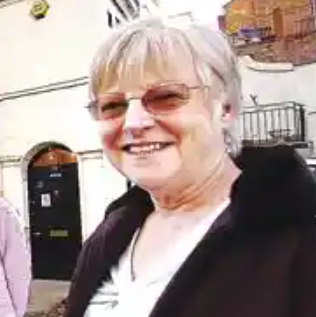Related Research Articles

Electronic tagging is a form of surveillance that uses an electronic device affixed to a person.
The United Kingdom has three distinct legal systems with a separate prison system in each: one for both England and Wales, one for Scotland, and one for Northern Ireland.

Restorative justice is an approach to justice where one of the responses to a crime is to organize a meeting between the victim and the offender, sometimes with representatives of the wider community. The goal is for them to share their experience of what happened, to discuss who was harmed by the crime and how, and to create a consensus for what the offender can do to repair the harm from the offense. This may include a payment of money given from the offender to the victim, apologies and other amends, and other actions to compensate those affected and to prevent the offender from causing future harm.

Juvenile delinquency, also known as juvenile offending, is the act of participating in unlawful behavior as a minor or individual younger than the statutory age of majority. In the United States of America, a juvenile delinquent is a person who commits a crime and is under a specific age. Most states specify a juvenile delinquent, or young offender, as an individual under 18 years of age while a few states have set the maximum age slightly different. In 2021, Michigan, New York, and Vermont raised the maximum age to under 19, and Vermont law was updated again in 2022 to include individuals under the age of 20. Only three states, Georgia, Texas, and Wisconsin still appropriate the age of a juvenile delinquent as someone under the age of 17. While the maximum age in some US states has increased, Japan has lowered the juvenile delinquent age from under 20 to under 18. This change occurred on April 1, 2022 when the Japanese Diet activated a law lowering the age of minor status in the country. Just as there are differences in the maximum age of a juvenile delinquent, the minimum age for a child to be considered capable of delinquency or the age of criminal responsibility varies considerably between the states. Some states that impose a minimum age have made recent amendments to raise the minimum age, but most states remain ambiguous on the minimum age for a child to be determined a juvenile delinquent. In 2021, North Carolina changed the minimum age from 6 years old to 10 years old while Connecticut moved from 7 to 10 and New York made an adjustment from 7 to 12. In some states the minimum age depends on the seriousness of the crime committed. Juvenile delinquents or juvenile offenders commit crimes ranging from status offenses such as, truancy, violating a curfew or underage drinking and smoking to more serious offenses categorized as property crimes, violent crimes, sexual offenses, and cybercrimes.

The Youth Criminal Justice Act is a Canadian statute, which came into effect on April 1, 2003. It covers the prosecution of youths for criminal offences. The Act replaced the Young Offenders Act, which itself was a replacement for the Juvenile Delinquents Act.

The Probation Service for England and Wales is a statutory criminal justice service, mainly responsible for the supervision of offenders in the community and the provision of reports to the criminal courts to assist them in their sentencing duties. It was established in its current form by the Criminal Justice and Court Services Act in April 2001, but has existed since 1907 as a set of area-based services interacting at arm's length with central government.

A probation and parole officer is an official appointed or sworn to investigate, report on, and supervise the conduct of convicted offenders on probation or those released from incarceration to community supervision such as parole. Most probation and parole officers are employed by the government of the jurisdiction in which they operate, although some are employed by private companies that provide contracted services to the government.

Nacro is a social justice charity based in England and Wales, established in 1966 from the previous National Association of Discharged Prisoners’ Aid Societies, it became the largest criminal justice-related charity in England and Wales. In the 1970s Nacro also became involved in policy discussions with the British Government, particularly with the Home Office, which has responsibility for prisons and probation services. Since 2011, its strategy has focused on extending its high-level influence at government level, with commissioners, policy makers and practitioners, and increasing its partnership work.
The youth justice system in England and Wales comprises the organs and processes that are used to prosecute, convict and punish persons under 18 years of age who commit criminal offences. The principal aim of the youth justice system is to prevent offending by children and young persons.
Rodney Emrys Morgan is Professor Emeritus, University of Bristol and Visiting Professor at the University of Sussex. He is the former chair of the Youth Justice Board for England and Wales (2004-7) and prior to that was HM Chief Inspector of Probation for England and Wales (2001-4).
HM Prison Whatton is a Category C men's prison, located in the village of Whatton, near Bingham in Nottinghamshire, England. The prison is operated by His Majesty's Prison Service, and houses males convicted of sexual offences.
Catch22 is a social business, a not for profit business with a social mission which operates in the United Kingdom. Catch22 can trace its roots back 229 years, to the formation of The Philanthropic Society in 1788. Catch22 designs and delivers services that build resilience and aspiration in people and communities.
His Majesty's Inspectorate of Probation (HMIP) is a statutory body and independent UK inspectorate funded by the Ministry of Justice, formed in 1936.

Humberside Probation Trust was a criminal justice agency which protects the public by ensuring offenders are punished and rehabilitated. Humberside was one of 35 probation trusts within England and Wales that were part of the National Offender Management Service (NOMS) and a department of the Ministry of Justice.
Paul McDowell is a former Her Majesty's Chief Inspector of Probation for England and Wales. He led HM Inspectorate of Probation (HMIP) from 2014 to 2015, replacing Liz Calderbank. He had been Chief Executive of Nacro and a Prison Governor in Her Majesty's Prison Service.
Sarah Payne is the head of the National Offender Management Service in Wales, previously having worked as the chief executive of the Wales Probation Trust. Prior to her probation work, she was chief executive of the charity YWCA England and Wales. She was an area manager and a governor in HM Prison Service, having entered the service directly from university on a graduate scheme.
Transforming Rehabilitation (TR) was the name given to a white paper issued by the UK Ministry of Justice in May 2013, and to a programme of work from 2013 to 2016 to enact the strategy outlined in the paper. TR is concerned with the supervision and rehabilitation of offenders in England and Wales.
In the Australian legal system, a good behaviour bond is a type of non-custodial sentence which involves the condition of the offender's “good behaviour” for a set period. The condition of “good behaviour” primarily requires the offender to obey the law, but may also include additional probation officer supervision, mandatory medical treatment or participation in rehabilitation, counselling and intervention programs. These imposed conditions are determined by state legislation and at the magistrate's discretion. A good behaviour bond may be established with or without a recorded legal conviction for the offence. The specific conditions which constitute a good behaviour bond, as well as the consequences for breaching them, vary under each Australian state or territory's legislation, but overall are used most commonly for first-time and juvenile offenders.

The Minister of State for Prisons, Parole and Probation is a mid-level ministerial office in the Ministry of Justice. It has, at times, been seen as the deputy to the Secretary of State for Justice and Lord Chancellor.

Jenny Susan Margaret Roberts OBE (1940-2010) was Chief Probation Officer for Hereford and Worcester and a writer on probation. She introduced new concepts on how women offenders were treated in the UK justice system which went on to influence women's probation services in Australia, the Irish Republic and Northern Ireland. She was the first woman to chair the Association of Chief Officers of Probation (ACOP) in 1992.
References
- 1 2 "Professor Neal Hazel". School of Health and Society. University of Salford. Retrieved 7 October 2018.
- ↑ Davis, Ann (2003). "Book Review: Parenting in Poor Environments". Social Work Education. 22 (6): 631–632.
- ↑ Holman, Bob (2004). "Book Review: Parenting in Poor Environments". British Journal of Social Work. 31 (1): 129–130. doi: 10.1093/bjsw/bch011 .
- ↑ Pierson, John (12 February 2004). "Parenting in Poor Environments Review". Community Care (1509): 46.
- ↑ Stanko, Elizabeth (2003). The Meanings of Violence . London: Routledge. p. 6. ISBN 0-415-30129-7.
- 1 2 "Prof Neal Hazel". SEEK: Salford Environment for Expert and Knowledge. University of Salford. Retrieved 27 March 2016.
- ↑ Olly, Roger (2012). "Engaging Fathers in the Antenatal and Post-natal Periods". In Potter, Carol; Olley, Roger (eds.). Engaging Fathers in the Early Years. London: Continuum. pp. 49–50. ISBN 978-1-4411-1069-5.
- ↑ "Most-cited articles as of March 1, 2016". Youth Justice. Sage Journals. 1 March 2016. Retrieved 29 March 2016.
- ↑ Youth Justice Statistics 2011/12 (PDF). Ministry of Justice. 31 January 2013. pp. 78–79. Retrieved 27 February 2016.
- ↑ "Kids for Cash Press Notes" (PDF). Kids for Cash The Movie. p. 24. Retrieved 31 March 2016.
- ↑ Russell Webster (28 November 2017). "A theory of change for resettlement" (News). Retrieved 7 October 2018.
- ↑ "Report puts forward new approach to stop young people reoffending" (News). 12 December 2017. Retrieved 7 October 2018.
- ↑ Nacro Annual Report 2018 (PDF). Nacro. October 2018. p. 26.
- ↑ How to make resettlement constructive. Youth Justice Board. 11 September 2018. p. 13.
- ↑ Layla Haidrani (17 February 2015). "Fears over release force some young people into custody" (News). Children and Young People Now. Retrieved 7 October 2018.
- ↑ Diana Ruthven (6 August 2014). "New research addresses worrying gap in knowledge about resettlement of girls and young women" (News). T2A Transition to Adulthood. Retrieved 15 February 2016.
- ↑ Alistair Love (2015). An evaluation of Reaching Your Potential: A Youth in Focus Project. YMCA. p. 10.
- ↑ Joint thematic inspection of resettlement services to children by Youth Offending Teams and partner agencies (PDF). Her Majesty's Inspectorate of Probation. March 2015.
- ↑ "How to move up from a researcher post to lecturer" (News). Times Higher Education. 15 January 2015. Retrieved 27 March 2016.
- ↑ "Academic appointed as Her Majesty's Deputy Chief Inspector of Probation" (News). New Law Journal. 15 December 2014. Retrieved 25 March 2016.
- ↑ "Salford criminologist at top of HM Inspectorate of Probation". University of Salford press release. University of Salford. 16 November 2015. Retrieved 2 March 2016.
- ↑ "Appointment of 10 members of the Youth Justice Board". Gov.uk. Ministry of Justice. 8 January 2018. Retrieved 30 September 2018.
- ↑ "Youth Reoffending Investigation Evidence" (PDF). London Assembly. Mayor of London. Retrieved 20 March 2016.